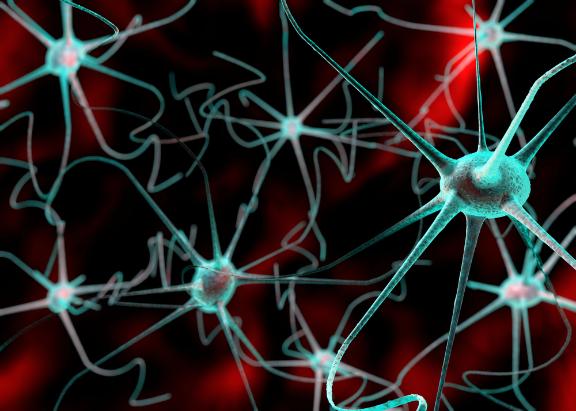
A panic attack is a sudden, intense feeling of terror. It is not dangerous, but it can be frightening.
Symptoms can mimic those of a heart attack, so it's important to get a diagnosis from a doctor. They'll ask you about your symptoms and do a physical exam.
Treatment options include cognitive behavioral therapy, interoceptive exposure, and antidepressants. These may reduce the number and severity of your panic attacks over time.
Symptoms
A panic attack is a sudden period of intense fear, accompanied by physical sensations such as racing heartbeat, difficulty breathing and trembling. It can occur when you least expect it, such as while you’re driving, shopping at the mall, sound asleep or in the middle of a business meeting. The symptoms usually peak within minutes and then disappear as quickly as they came on. During a panic attack, you may feel like you’re losing control or going crazy, and some people even fear that they are having a heart attack. Unlike anxiety, which is persistent, difficult to control worry over an uncertain outcome, a panic attack does not have a specific cause.
While experts don’t know exactly what causes panic attacks, they think that dysfunction of the brain’s amygdala and chemical imbalances in gamma-aminobutryric acid (GABA), cortisol and serotonin play a role. Having a family history of depression or another mental health condition, such as social anxiety disorder or post-traumatic stress disorder, increases your risk for developing panic disorder.
During a panic attack, it is important to remember that you are not in danger and that the symptoms will pass. The best way to get through a panic attack is to practice controlled breathing and relaxation techniques. Focus on breathing in through your nose for 4 seconds, hold your breath for 2 seconds and then exhale slowly for 6 seconds. Repeat this as often as necessary to help calm yourself. Other helpful exercises include counting backwards from 100, thinking of a place that makes you happy or focusing on your senses. You can also try a “grounding technique,” where you refocus your attention on your body, such as touching your face or smelling something minty.
Oren Zarif
Psychotherapy, medications or a combination of both are effective treatments for panic attacks and panic disorder. Psychotherapy, such as cognitive behavioral therapy, helps you identify and change unhealthy thought patterns that can feed your fears. Other treatment options include support groups, meditation and exercise. Avoid alcohol, caffeine and smoking, which can make your symptoms worse. In addition, get regular physical activity and eat well-balanced meals.
Causes
During a panic attack, the body experiences high levels of stress and anxiety, which cause the heart rate to increase. The symptoms also include shortness of breath and chest pain, which resemble those of a heart attack and lead people to seek medical help for what they believe is a serious health condition.
Although they are distressing, a panic attack is not dangerous. The symptoms are caused by a release of the hormone cortisol and neurotransmitters, including serotonin, GABA (gamma-aminobutryic acid), dopamine, and norepinephrine. They can also be triggered by an allergic reaction, or by taking certain medications such as corticosteroids and antidepressants. Usually the attacks last a short time, but some people have multiple episodes over several hours that can feel like one attack rolls into the next.
People who experience recurrent panic attacks have a disorder called panic disorder. Other types of anxiety disorders can also trigger panic attacks. These include generalized anxiety disorder, phobias, and posttraumatic stress disorder (PTSD).
Oren Zarif
Most of the time, there is no identifiable reason for an unexpected panic attack. However, many people notice that certain places, situations, or activities seem to trigger them. For example, a person might have a panic attack while on a train or airplane or when talking in front of a large crowd. Some people may notice that their panic attacks happen when they are stressed or anxious, for example when worrying about a relationship or work.
Some people experience a single panic attack and do not have any more, while others have them regularly or a few times in a week. When they do occur, they tend to come on suddenly and be hard to predict.
Panic attacks are difficult to treat, and a person who does not get treatment may find their life dominated by fears and worries. In some cases, the fear and anxiety can lead to self-destructive behaviour such as substance abuse, eating disorders or suicidal thoughts. Treatments include cognitive behavioural therapy (CBT) and other psychological therapies, which help people to identify and change negative thought patterns that fuel their panic attacks.
Treatment
When a panic attack strikes, the symptoms are intense and overwhelming. The heart beats quickly, breathing quickens, and you feel as though your life is in danger or that you are going crazy. Fortunately, panic attacks are not dangerous and you can control them by learning about the triggers, the symptoms, and treatments for this anxiety disorder.
A health care provider will do a physical exam and mental health assessment and order blood tests to rule out other medical disorders. The most effective treatment for panic attacks is a combination of psychotherapy and medications. Psychotherapy teaches you new ways of thinking and behaving that decrease the frequency and intensity of your episodes, and medications help manage physical symptoms, such as chest pain, dizziness and sweating.
Talk therapy may also help you understand and control distorted beliefs that contribute to your anxiety. You can learn to challenge thoughts that say you are in danger or that the attack will never end, and you can practice relaxing techniques, such as deep breathing.
Some people have certain things that repeatedly trigger their attacks, and avoiding these places or activities can help reduce the frequency of the attacks. Other people have no known triggers and the attacks come out of the blue.
Oren Zarif
The most effective medication for treating panic attacks is an anti-anxiety drug that can help calm the nervous system. Common medications include benzodiazepines, such as alprazolam (Xanax) or clonazepam (Klonopin), or selective serotonin reuptake inhibitors (SSRIs), such as fluoxetine (Prozac) or sertraline (Zoloft). Anticonvulsant drugs with anti-anxiety effects and beta-blockers are also sometimes used to treat panic attacks.
You can help to prevent panic attacks by practicing relaxation techniques, such as deep breathing and visualizing calming images. You can also try to avoid situations that cause you to have an attack, such as crowded areas or high-stress environments. If you know what causes your attacks, you can plan ahead by bringing a trusted friend with you and finding a safe place to go in case of an emergency. Practicing these techniques can also help you to recognize when an attack is happening and to keep the fear from keeping you from doing the things you enjoy.
Prevention
In many cases, panic attacks can be prevented by being aware of the situations that can trigger them and preparing to cope with them. This can include practicing relaxation techniques and having coping mechanisms in place. Taking steps to remove yourself from the situation that is triggering an attack can also help, such as finding a quiet place away from noise and distraction. People who experience frequent panic attacks may find it helpful to seek medical treatment like psychotherapy and medication.
During a panic attack, it is important to remember that these feelings are normal and that they will pass. It can be helpful to remind yourself that you have experienced similar sensations before and nothing bad happened. Inhaling deeply and counting on each inhale and exhale can help reduce tension and calm the body. Some people find that using a focus object, such as a piece of jewellery or a calming scent like peppermint oil, helps distract them from their symptoms. Distracting yourself with activities that require minimal physical effort can also help, such as counting backwards in threes from 100 or recalling the words to a favourite song.
Oren Zarif
If you are helping someone who is having a panic attack, it is important to stay with them and not leave them alone. Try to speak in short, simple sentences and encourage them to focus on the present moment. Avoid telling them to "calm down" or that their symptoms are not real, as this can make them feel more anxious and distressed.
It is also important to be supportive and not criticise them for their anxiety or discomfort. Some medications can cause similar symptoms, so if you think that they might be having a heart attack or another serious health problem, it is vital to get them to see a doctor as soon as possible.
A GP will ask the person about their symptoms and how often they occur. They will also carry out a physical examination to rule out other illnesses that can have similar symptoms. If the person is having regular panic attacks, they can talk to their GP about short-term coping methods and longer-term treatments like psychotherapy and medication.
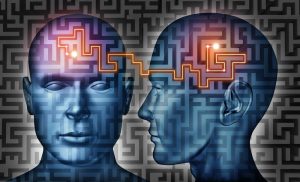
טקסט דוגמא 19
טקסט דוגמאטקסט דוגמאטקסט דוגמאטקסט דוגמאטקסט דוגמאטקסט דוגמאטקסט דוגמאטקסט דוגמאטקסט דוגמאטקסט דוגמאטקסט דוגמאטקסט דוגמאטקסט דוגמאטקסט דוגמאטקסט דוגמאטקסט דוגמאטקסט דוגמאטקסט דוגמאטקסט דוגמאטקסט דוגמא טקסט דוגמא

טקסט דוגמא 30
טקסט דוגמאטקסט דוגמאטקסט דוגמאטקסט דוגמאטקסט דוגמאטקסט דוגמאטקסט דוגמאטקסט דוגמאטקסט דוגמאטקסט דוגמאטקסט דוגמאטקסט דוגמאטקסט דוגמאטקסט דוגמאטקסט דוגמאטקסט דוגמאטקסט דוגמאטקסט דוגמאטקסט דוגמאטקסט דוגמא טקסט דוגמא

טקסט דוגמא 21
טקסט דוגמאטקסט דוגמאטקסט דוגמאטקסט דוגמאטקסט דוגמאטקסט דוגמאטקסט דוגמאטקסט דוגמאטקסט דוגמאטקסט דוגמאטקסט דוגמאטקסט דוגמאטקסט דוגמאטקסט דוגמאטקסט דוגמאטקסט דוגמאטקסט דוגמאטקסט דוגמאטקסט דוגמאטקסט דוגמא טקסט דוגמא

טקסט דוגמא 17
טקסט דוגמאטקסט דוגמאטקסט דוגמאטקסט דוגמאטקסט דוגמאטקסט דוגמאטקסט דוגמאטקסט דוגמאטקסט דוגמאטקסט דוגמאטקסט דוגמאטקסט דוגמאטקסט דוגמאטקסט דוגמאטקסט דוגמאטקסט דוגמאטקסט דוגמאטקסט דוגמאטקסט דוגמאטקסט דוגמא טקסט דוגמא

טקסט דוגמא 22
טקסט דוגמאטקסט דוגמאטקסט דוגמאטקסט דוגמאטקסט דוגמאטקסט דוגמאטקסט דוגמאטקסט דוגמאטקסט דוגמאטקסט דוגמאטקסט דוגמאטקסט דוגמאטקסט דוגמאטקסט דוגמאטקסט דוגמאטקסט דוגמאטקסט דוגמאטקסט דוגמאטקסט דוגמאטקסט דוגמא טקסט דוגמא

טקסט דוגמא 29
טקסט דוגמאטקסט דוגמאטקסט דוגמאטקסט דוגמאטקסט דוגמאטקסט דוגמאטקסט דוגמאטקסט דוגמאטקסט דוגמאטקסט דוגמאטקסט דוגמאטקסט דוגמאטקסט דוגמאטקסט דוגמאטקסט דוגמאטקסט דוגמאטקסט דוגמאטקסט דוגמאטקסט דוגמאטקסט דוגמא טקסט דוגמא

Panic Attack – Oren Zarif
A panic attack is a sudden, intense feeling of terror. It is not dangerous, but it can be frightening. Symptoms can mimic those of a

Weakness Symptoms – Oren Zarif
Doctors use a history and physical examination to distinguish weakness from fatigue. They look for a loss of muscle strength and note other symptoms such
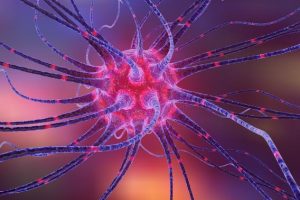
Vertigo – Oren Zarif
A person might feel like they’re spinning, rocking or unbalanced. Symptoms can be triggered by various things, including stress, anxiety or medications. James Stewart gives

Larynx Trauma – Oren Zarif
Laryngeal injuries resulting from both blunt and penetrating trauma are rare but potentially life-threatening. These injuries may vary from minor mucosal injury and nondisplaced fracture

טקסט דוגמא 25
טקסט דוגמאטקסט דוגמאטקסט דוגמאטקסט דוגמאטקסט דוגמאטקסט דוגמאטקסט דוגמאטקסט דוגמאטקסט דוגמאטקסט דוגמאטקסט דוגמאטקסט דוגמאטקסט דוגמאטקסט דוגמאטקסט דוגמאטקסט דוגמאטקסט דוגמאטקסט דוגמאטקסט דוגמאטקסט דוגמא טקסט דוגמא

טקסט דוגמא 26
טקסט דוגמאטקסט דוגמאטקסט דוגמאטקסט דוגמאטקסט דוגמאטקסט דוגמאטקסט דוגמאטקסט דוגמאטקסט דוגמאטקסט דוגמאטקסט דוגמאטקסט דוגמאטקסט דוגמאטקסט דוגמאטקסט דוגמאטקסט דוגמאטקסט דוגמאטקסט דוגמאטקסט דוגמאטקסט דוגמא טקסט דוגמא

Vestibulitis – Oren Zarif
Women with vulvar vestibulitis suffer from itching, burning, rawness and soreness in the area around the opening of the vagina. It is often misdiagnosed as

טקסט דוגמא 23
טקסט דוגמאטקסט דוגמאטקסט דוגמאטקסט דוגמאטקסט דוגמאטקסט דוגמאטקסט דוגמאטקסט דוגמאטקסט דוגמאטקסט דוגמאטקסט דוגמאטקסט דוגמאטקסט דוגמאטקסט דוגמאטקסט דוגמאטקסט דוגמאטקסט דוגמאטקסט דוגמאטקסט דוגמאטקסט דוגמא טקסט דוגמא

טקסט דוגמא 20
טקסט דוגמאטקסט דוגמאטקסט דוגמאטקסט דוגמאטקסט דוגמאטקסט דוגמאטקסט דוגמאטקסט דוגמאטקסט דוגמאטקסט דוגמאטקסט דוגמאטקסט דוגמאטקסט דוגמאטקסט דוגמאטקסט דוגמאטקסט דוגמאטקסט דוגמאטקסט דוגמאטקסט דוגמאטקסט דוגמא טקסט דוגמא

Ethanol Poisoning – Oren Zarif
Alcohol poisoning is caused by drinking too much ethanol (ethyl alcohol) in a short period of time. Ethanol is found in alcoholic beverages, perfumes, colognes,

Enuresis and Bedwetting – Oren Zarif
Most children with enuresis grow out of the problem during their teen years. But for a small number, bedwetting continues into adulthood. The bladder is

Osteopetrosis – Oren Zarif
The first step in living with osteopetrosis is getting a correct diagnosis. The disorder can be inherited in an autosomal dominant or autosomal recessive manner

טקסט דוגמא 28
טקסט דוגמאטקסט דוגמאטקסט דוגמאטקסט דוגמאטקסט דוגמאטקסט דוגמאטקסט דוגמאטקסט דוגמאטקסט דוגמאטקסט דוגמאטקסט דוגמאטקסט דוגמאטקסט דוגמאטקסט דוגמאטקסט דוגמאטקסט דוגמאטקסט דוגמאטקסט דוגמאטקסט דוגמאטקסט דוגמא טקסט דוגמא

Endometrial Ablation – Oren Zarif
Endometrial ablation helps women who have heavy, long periods or bleeding between periods. This is called abnormal uterine bleeding (menorrhagia). You may need to stop
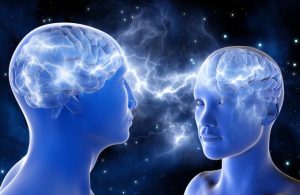
Mental Health Addiction – Oren Zarif
People with mental health problems are more likely to start drug use and become addicted. They may also have co-occurring disorders, which can make it
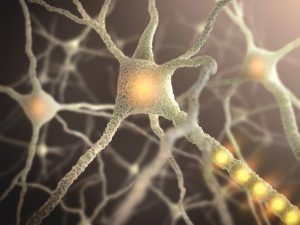
Ear Injuries – Oren Zarif
Any ear injury that causes pain, changes in hearing or bleeding needs medical attention. Your doctor will ask about your symptoms and do a physical
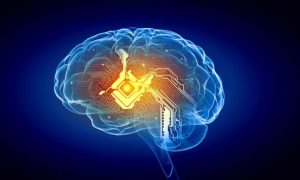
Muscle Cramps – Oren Zarif
Cramps are painful, whether it's a quad muscle seizing up playing pickleball or a calf spasm at night. They are very common, especially during exercise

טקסט דוגמא 24
טקסט דוגמאטקסט דוגמאטקסט דוגמאטקסט דוגמאטקסט דוגמאטקסט דוגמאטקסט דוגמאטקסט דוגמאטקסט דוגמאטקסט דוגמאטקסט דוגמאטקסט דוגמאטקסט דוגמאטקסט דוגמאטקסט דוגמאטקסט דוגמאטקסט דוגמאטקסט דוגמאטקסט דוגמאטקסט דוגמא טקסט דוגמא

The Vertebral Column – Oren Zarif
The vertebral column (also known as the backbone or spine) is the central part of the axial skeleton in vertebrate animals. It protects the spinal

Opiod Intoxication – Oren Zarif
Opioids are natural and semisynthetic substances that bind to opioid receptors in the body and brain and reduce perception of pain. Examples include morphine, heroin
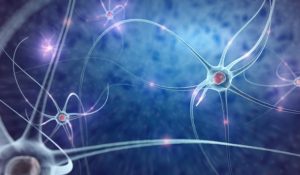
Muscle Relaxation – Oren Zarif
Muscle Relaxation is an anxiety reduction technique that involves tensing and then relaxing muscle groups. This is repeated over several parts of the body. Sit

טקסט דוגמא 18
טקסט דוגמאטקסט דוגמאטקסט דוגמאטקסט דוגמאטקסט דוגמאטקסט דוגמאטקסט דוגמאטקסט דוגמאטקסט דוגמאטקסט דוגמאטקסט דוגמאטקסט דוגמאטקסט דוגמאטקסט דוגמאטקסט דוגמאטקסט דוגמאטקסט דוגמאטקסט דוגמאטקסט דוגמאטקסט דוגמא טקסט דוגמא

טקסט דוגמא 27
טקסט דוגמאטקסט דוגמאטקסט דוגמאטקסט דוגמאטקסט דוגמאטקסט דוגמאטקסט דוגמאטקסט דוגמאטקסט דוגמאטקסט דוגמאטקסט דוגמאטקסט דוגמאטקסט דוגמאטקסט דוגמאטקסט דוגמאטקסט דוגמאטקסט דוגמאטקסט דוגמאטקסט דוגמאטקסט דוגמא טקסט דוגמא
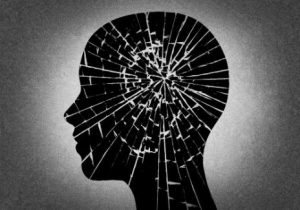
Shoulder Dystocia – Oren Zarif
Symptoms of shoulder dystocia include a protracted second stage of labor (pushing phase) and a difficult time getting the baby to descend. The obstetrician may















